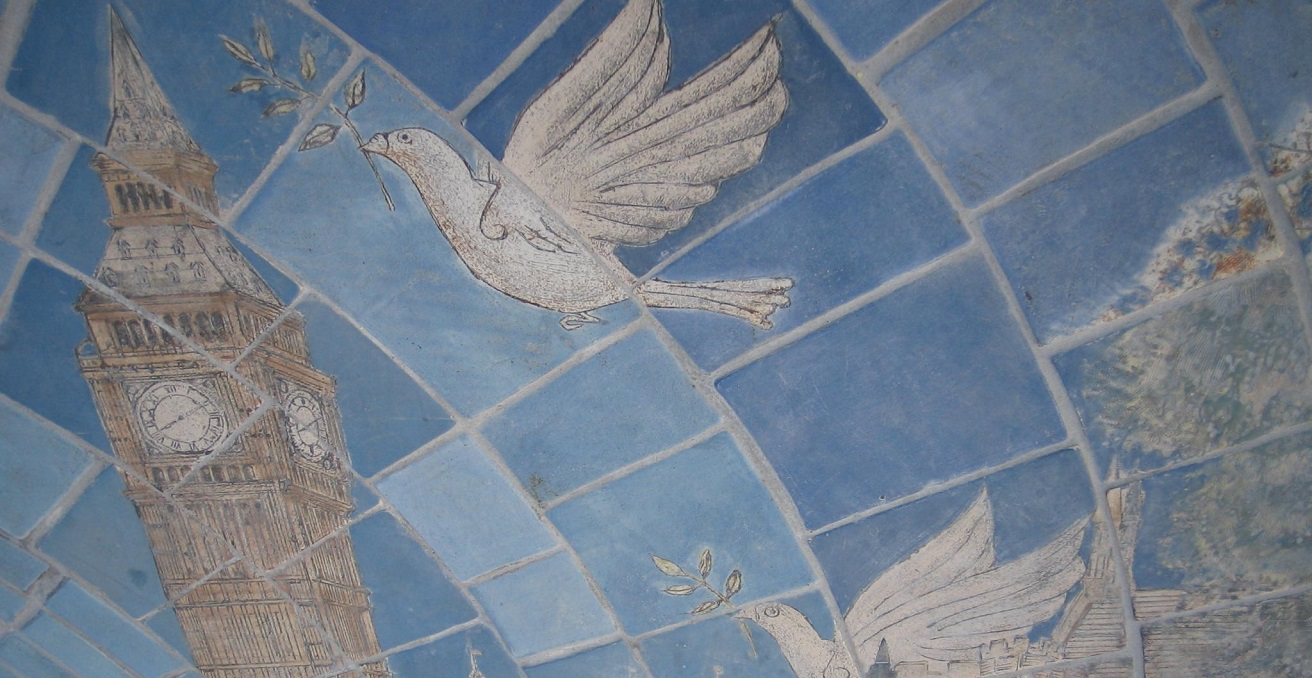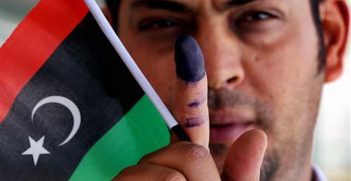Forgetting Women Undermines Peace: The Good Friday Agreement 25 Years On

Too often, in important political and diplomatic roles, women are missing from recognition. The anniversary of the Good Friday Agreement provides an opportunity to reexamine and remember the women leaders who are at the forefront of political change.
How war and peace are remembered is consequential to how society rebuilds and whether or not it falls back into conflict. Twenty-five years since the Good Friday Agreement brokered peace in Northern Ireland after a thirty-year conflict, tensions are rising in the country. Until now, some of the critical actors in bringing and sustaining peace remain largely invisible to the public and international realm.
On the 20th anniversary of the GFA in 2018, Mo Mowlam’s stepdaughter wrote a piece for The Guardian calling out the British media for failing to mention Mowlam, the Secretary of State for Northern Ireland from 1997 -1999 during the period of the Good Friday peace negotiations, in their coverage of the anniversary. “Her absence was everywhere,” she wrote. Tony Blair had failed to even mention Mowlam’s name in his anniversary address, let alone outline her achievements in bringing peace to Northern Ireland. Yet Mowlam won the trust of paramilitaries from all sides and visited them in prison, and according to the Progressive Unionist party’s Dawn Purvis, Mowlam “was instrumental in setting an ambience that was conducive to reaching agreement.” What was not widely known until many years later was that Mowlam was undertaking this task while suffering from terminal brain cancer from which she died in 2005.
Similarly, Gerry Adams, the former president of Sinn Féin, published a series of Instagram posts commemorating the 25 years since the Good Friday Agreement (GFA). Of his 32 posts, and the countless images of men, Adams mentions seven women (five by name) – Baibre de Brún, Lucilita Bhreatnach, Siobhan O’Hanlon, Mo Mowlam, and Peggy McGuiness (Martin’s mother); as well as the “mothers of two volunteers who had been killed.” The inequity is telling, as is the special significance given to mothers. The first of Adams’ posts contained a photo of Adams, Albert Reynolds, and John Hume at a press conference following the IRA’s ceasefire in 1994. Standing in the background, off to the side and alone, is Rita O’Hare, the former editor of An Phoblacht (Republican News), the director of publicity and later Sinn Féin’s representative in North America – a significant role that required her to garner support for Sinn Féin from the US, and establish senior contact points in the US Senate and Congress (according to her Irish Times obituary, 11 March 2023). It’s a telling image – men to the front and a woman looking on from a distance, invested in the conversation about peace negotiations but seemingly peripheral to it. While Adams singled out O’Hare in his commentary, commending her “tenacity” and “vision of a new future,” it seems the primary reason for his focus was her passing that week.
The forgetting of women peacebuilders in Northern Ireland is a familiar pattern, but change is happening. Five years on from Blair’s 20th-anniversary omission, there appears to have been a shift. British Labour released a statement for the 25th anniversary honouring Mowlam – the woman who “was instrumental in making it happen.” Deputy leader of the Labour Party, Angela Rayner, went further and named the elephant in the room. She said, “The contribution that [Mowlam] and other women made to the peace process is too often overlooked. We won’t forget.” A dinner was held at Hillsborough Castle specifically to mark Mowlam’s contribution to the peace process. Blair was in attendance and recognised Mowlam as “a breath of fresh air” and “a very clever politician.”
Women peacemakers who were instrumental to the GFA are finally being recognised around the world. A Peace Heroines of Northern Ireland exhibition is currently being shown at UN Headquarters in New York, and touring the Republic of Ireland and Northern Ireland. Former US Secretary of State Hillary Clinton gave an address at Queens University recognising 25 women who made significant contributions to the peace process. Monica McWilliams, who co-founded the Northern Ireland Women’s Coalition and which won two seats in the Forum elections that determined representation in the peace talks, reflected: “We’re getting more attention now 25 years later than we were at the time.” The Coalition led by McWilliams was credited with achieving the inclusion of “the right of women to full and equal political participation” in the draft GFA. It was an important addition, but it was largely drowned out by the strong bi-nationalist framing of the remainder of the GFA. A feature of “manly” power-sharing agreements is that they tend to relegate gendered inequality and experiences of war, including women’s representation, to ethnoreligious identities and interests, while political and socio-economic policies only serve to strengthen divisions.
The political representation of women, which cuts across sectarian divisions, however, is a crucial avenue for sustaining peace today, just as it was in 1998 when the GFA was negotiated. Like Gerry Adams, Sinn Féin leader Mary Lou McDonald also commemorated the anniversary of the Agreement on Instagram. In her post, she stands with her Northern Sinn Féin counterpart, Michelle O’Neill, and former President Bill Clinton. The message reads: “Reflecting on twenty-five years of the Good Friday Agreement #gfa25. Marking the progress of peace.” These two women, leaders, and at the fore, are very much invested in and central to discussions about sustaining peace on the island of Ireland.
Gabrielle Williams MP is a PhD Candidate at the Gender, Peace and Security Centre at Monash University. Her doctoral thesis will examine the agency and impact of women as supporters of the Republican movement in Ireland between 1969-1998. Gabrielle is also an elected member of the Victorian Parliament (2014) and currently serves as the Minister for Women, Prevention of Family Violence and Aboriginal Affairs.
Jacqui True, FASSA, is Professor of International Relations and Director of Monash University’s Centre for Gender, Peace and Security. She is also a Global Fellow, Peace Research Institute (PRIO), Oslo and received her PhD from York University, Toronto, Canada, and an honorary doctorate from Lund University Sweden in 2018.
This article is published under a Creative Commons License and may be republished with attribution.





